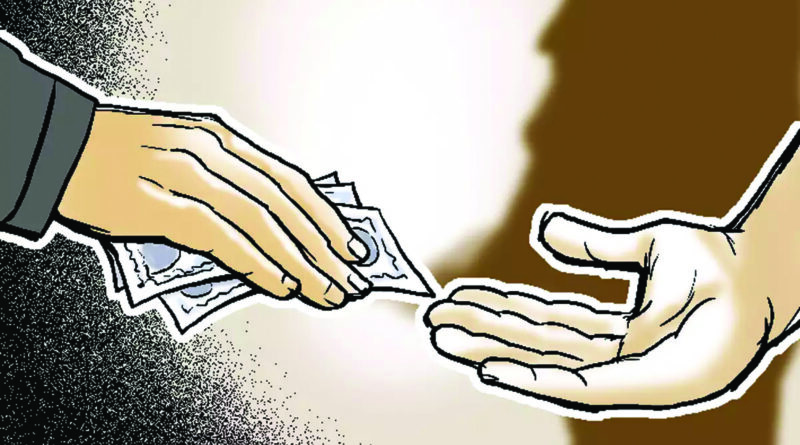Need for Corruption free Banking in India
Introduction:
Corruption is dishonest behaviour or abuse of entrusted power for private gain. It starts with the tendency of using public office for some personal benefit, implies the failure of ethics and erodes trust, weakens democracy, hampers economic development, undermines democratic institutions slows economic development, contributes to governmental instability and further exacerbates inequality, poverty, social division and the environmental crisis. Corruption is a complex social, political and economic phenomenon that affects all civilisations and attacks the foundation of democratic institutions by distorting electoral processes, perverting the rule of law and creating bureaucratic quagmires whose only reason for existing is the soliciting of bribes. Economic development is stunted because foreign direct investment is discouraged and small businesses within the country often find it impossible to overcome the “start-up costs” required because of corruption.
Corruptions can be in many forms:
- Extortion: It is the use of threats or coercion to obtain money or favours
- Nepotism: It is the awarding of jobs and promotions based on family relationships
- Cronyism: It is the favouring of friends and associates
- Fraud: It is the intentional misrepresentation of facts
- Money laundering: It is the concealment of illegally obtained funds
- Embezzlement: It is the misappropriation of funds
- Misuse of funds: It is the unauthorized use of funds
- Bribery: It is the act of offering, giving, soliciting, or receiving of any item of value as a means of influencing the actions of an individual holding a public or legal duty
- Influence peddling: the use of position or political influence on someone’s behalf in exchange for money or favours
The Corruption Perceptions Index (CPI) released by Transparency International is the most widely used global corruption ranking in the world. It measures how corrupt each country’s public sector is perceived to be, according to experts and business people. As per Corruption Perception Index (CPI) 2023, India is on 85th rank out of 180 country with score of 40 out of 100.
Causes of Corruption:
- Lack of Transparency
- Lack of accountability
- Actions and decisions are shielded from public scrutiny
- Weak Institutions and ineffective legal frameworks
- A perception of impunity due to the inadequate punishment of corrupt individuals
- Low Salaries and Incentives to Public officials
- Bureaucratic Red Tape
- Complex economic environment, involves various licences, permits, and approvals
- Political interference in administrative matters
- Cultural acceptance of corrupt behaviour in certain contexts,
- Lack of Whistle blower Protection
- Social Inequality
- Administrative Delay in the clearance of files
- Colonial Legacy of Unchallenged Authority
- Discretionary power to officials
Social and Economic Cost of Corruption:
- Disregard for Officials
- Lack of Respect Faith and Trust in Government
- A Decrease in Foreign Investment
- Delay in Growth
- Funds allocated for infrastructure projects often get syphoned off and stop development
- Rise of the underground economy
- Unequal distribution of Income
- Change in Consumption Pattern
- Increasing Inflation
- Lack of investment activity
- Low Tax collection for government causing fiscal deficit
- Adverse Impact on economic reforms
Legal and Regulatory Frameworks for Fighting Corruption in India
- Prevention of Corruption Act, 1988 amended in 2018
- Prevention of Money Laundering Act, 2002
- The Companies Act, 2013
- The Indian Penal Code, 1860
- Benami Transactions (Prohibition) Act, 1988
- Lokpal and Lokayuktas Act, 2013
- Criminal Law (Amendment) Act, 1952
- Central Vigilance Commission
Fight against corruption:
Fight against corruption involves a combination of tactics and strategies to reduce the risk of corruption and improve public trust.
- Strong and effective legal framework: It includes laws, regulations, and policies that are enforced by an independent and impartial judiciary. These laws must strive to address all types of corrupt activities, including bribery, embezzlement, and conflicts of interest.
- Strong institutions and systems of checks and balances: It includes establishing independent anti-corruption bodies to monitor and investigate cases of suspected corruption.
- Culture of integrity: It should include promoting values such as honesty, accountability, and transparency.
- Robust mechanisms of public oversight and participation: It includes the establishment of whistle blower protection laws and the promotion of public access to information.
- Effective system of monitoring and enforcement: It should include regular audits and inspections to ensure everyone follows the proper procedure.
- Responsible press
- People Involvement
- Effective and Credible Leadership
Recommendation of Nolan Committee:
Nolan Committee outlined Seven Ethical and Moral values to weed out corruption:
- Selflessness
- Integrity
- Objectivity
- Accountability
- Openness
- Honesty
- Leadership
Recommendation of Second Administrative Reforms Commission:
Strengthening Anti-Corruption Measures:
- Whistle blower Protection Act, 2014
- More independence, resources, and authority to Central Vigilance Commission
- Autonomy to Central Bureau of Investigation
Minimise the discretionary powers of officials:
- Standard Operating Procedures (SOPs)
- Leveraging technology and e-governance
Police Reforms:
- Police Accountability
- Community Policing
Promoting Ethical Governance:
- Code of Ethics
- Citizen Charters
Public Awareness Campaigns
Strengthening Parliamentary Oversight
Conclusion:
The corruption is a symptom of deep-seated and fundamental economic, political and institutional weaknesses and shortcomings in acountry. To be effective, measures against corruption must therefore address these underlying causes and not the symptoms. Emphasis must thus be placed on preventingcorruption by tackling the root causes that give rise to it through undertaking economic,political and institutional reforms. Anti-corruption enforcement measures such asoversight bodies, a strengthened police force and more efficient law will not beeffective in the absence of a serious effort to address the fundamental causes. Corruption will not disappear because of reforms. But reforms will bring it under control and minimize its adverse consequences.
Corruption is a major obstacle in the process of economic development and in modernizing a country or society as a whole.
Hence “Destroy corruption before it destroy us.”



